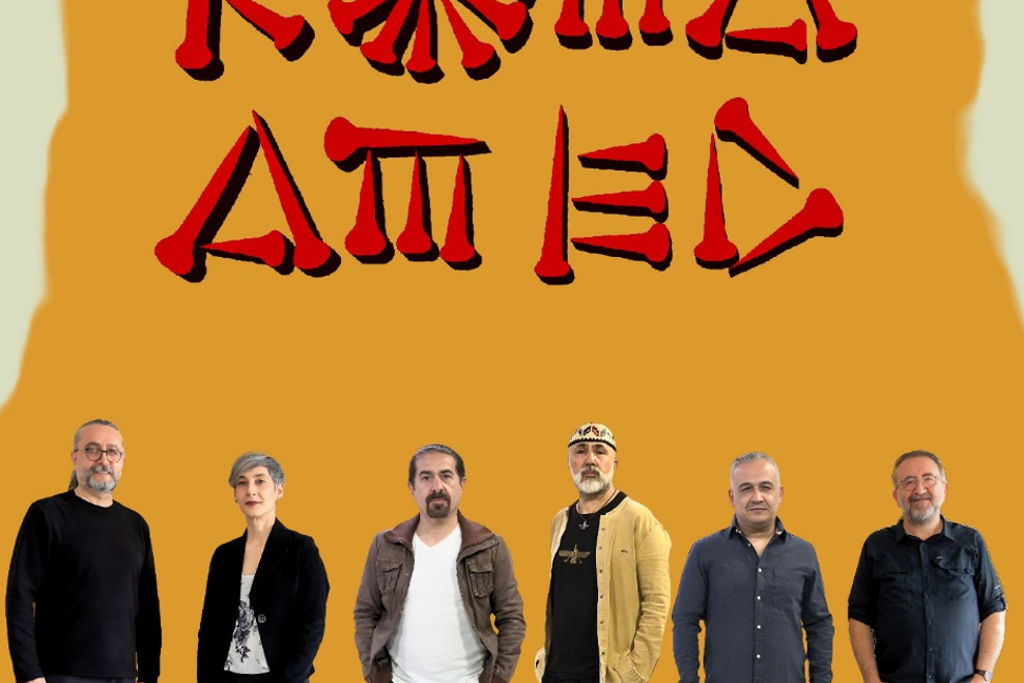Introduction
Koma Amed is a groundbreaking Kurdish music group that has played a pivotal role in the revival and popularization of Kurdish folk music. Founded in the 1990s, the group has become synonymous with cultural pride and artistic innovation, bridging traditional sounds with contemporary influences. This blog post explores the origins of Koma Amed, their musical evolution, the socio-political challenges they faced, and their significant impact on Kurdish culture.
Early Beginnings
Koma Amed was formed in 1991 in the city of Diyarbakır, Turkey, during a time of heightened political awareness among the Kurdish population. The group emerged from a desire to preserve and promote Kurdish music and culture, which had faced significant repression for decades. The founding members were passionate musicians who sought to create a platform for Kurdish expression, particularly in the wake of the 1980 military coup that suppressed Kurdish identity and culture.
The name "Koma Amed" reflects both a geographical and cultural identity, as "Amed" is the Kurdish name for Diyarbakır. The group aimed to represent the voices of the Kurdish people and to revive traditional melodies while incorporating modern musical elements. This fusion of styles would later become a hallmark of their sound, appealing to younger generations while honoring the rich history of Kurdish music.
Musical Evolution
Koma Amed's musical journey is characterized by a commitment to both tradition and innovation. Their debut album, "Koma Amed," released in 1993, showcased their unique blend of traditional Kurdish folk music with contemporary arrangements. The group utilized traditional instruments such as the tembûr and daf, while also integrating modern instruments and influences from rock and pop music.
The lyrics of Koma Amed's songs often reflect the struggles, aspirations, and cultural pride of the Kurdish people. Hits like "Dîlber" and "Bê Ser" became anthems of resistance, resonating with audiences who identified with the themes of love, longing, and the quest for freedom. The group's ability to convey deep emotions through their music helped solidify their status as one of the leading voices in Kurdish music.
Political Challenges
Throughout their career, Koma Amed has faced significant challenges due to the political environment in Turkey. The group's commitment to expressing Kurdish identity through music has often drawn the ire of authorities. In the early years, their concerts were frequently disrupted, and members faced harassment for their artistic expression.
In 1994, the Turkish government banned Koma Amed’s music, labeling it as separatist propaganda. This censorship only fueled their determination to resist oppression through their art. Despite the challenges, Koma Amed continued to perform, often holding concerts in diaspora communities across Europe and the Middle East. Their music became a source of empowerment for Kurds living in exile, providing a sense of connection to their roots and culture.
Legacy and Impact
Koma Amed's influence on Kurdish music and culture is profound. They have played a crucial role in the revival of Kurdish folk traditions, inspiring a new generation of artists to embrace and celebrate their heritage. The group has released numerous albums over the years, each one further solidifying their status as cultural icons.
Their music has transcended borders, resonating with audiences around the world who appreciate the richness of Kurdish culture. Koma Amed has performed at numerous international festivals, showcasing the beauty of Kurdish music and fostering cross-cultural understanding. Their commitment to cultural preservation and innovation has encouraged other Kurdish artists to explore their roots while embracing contemporary sounds.
In addition to their musical contributions, Koma Amed has been a vocal advocate for Kurdish rights and identity. They have used their platform to raise awareness about the struggles faced by the Kurdish community, emphasizing the importance of cultural pride and resistance against oppression. Their songs serve as a reminder of the power of art to inspire change and foster unity.
Conclusion
Koma Amed's journey is a testament to the transformative power of music as a vehicle for cultural expression and resistance. Through their innovative fusion of traditional and contemporary styles, they have revitalized Kurdish folk music and provided a platform for the voices of the Kurdish people. Their commitment to preserving cultural heritage while addressing socio-political issues has made them a beloved and influential force in the world of music.
As we celebrate Koma Amed's contributions to Kurdish culture, we recognize their role as pioneers who have inspired generations to embrace their identity and share their stories. In a world where cultural expressions are often marginalized, Koma Amed stands as a beacon of hope, reminding us of the enduring strength of music and the resilience of the human spirit.
